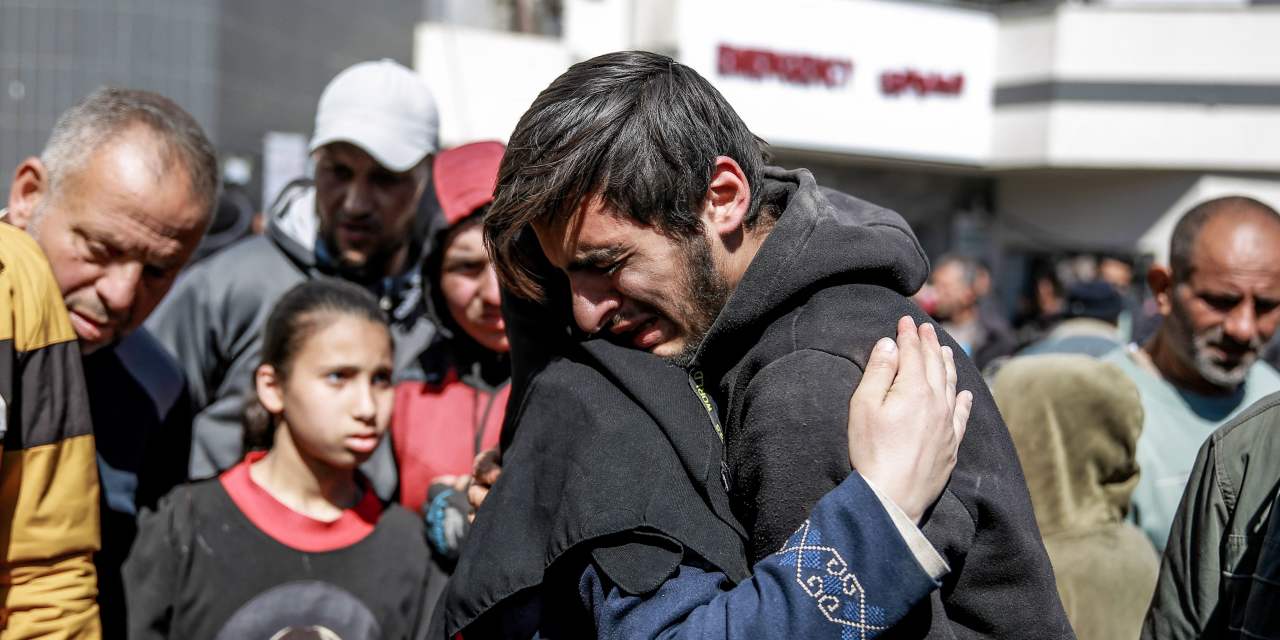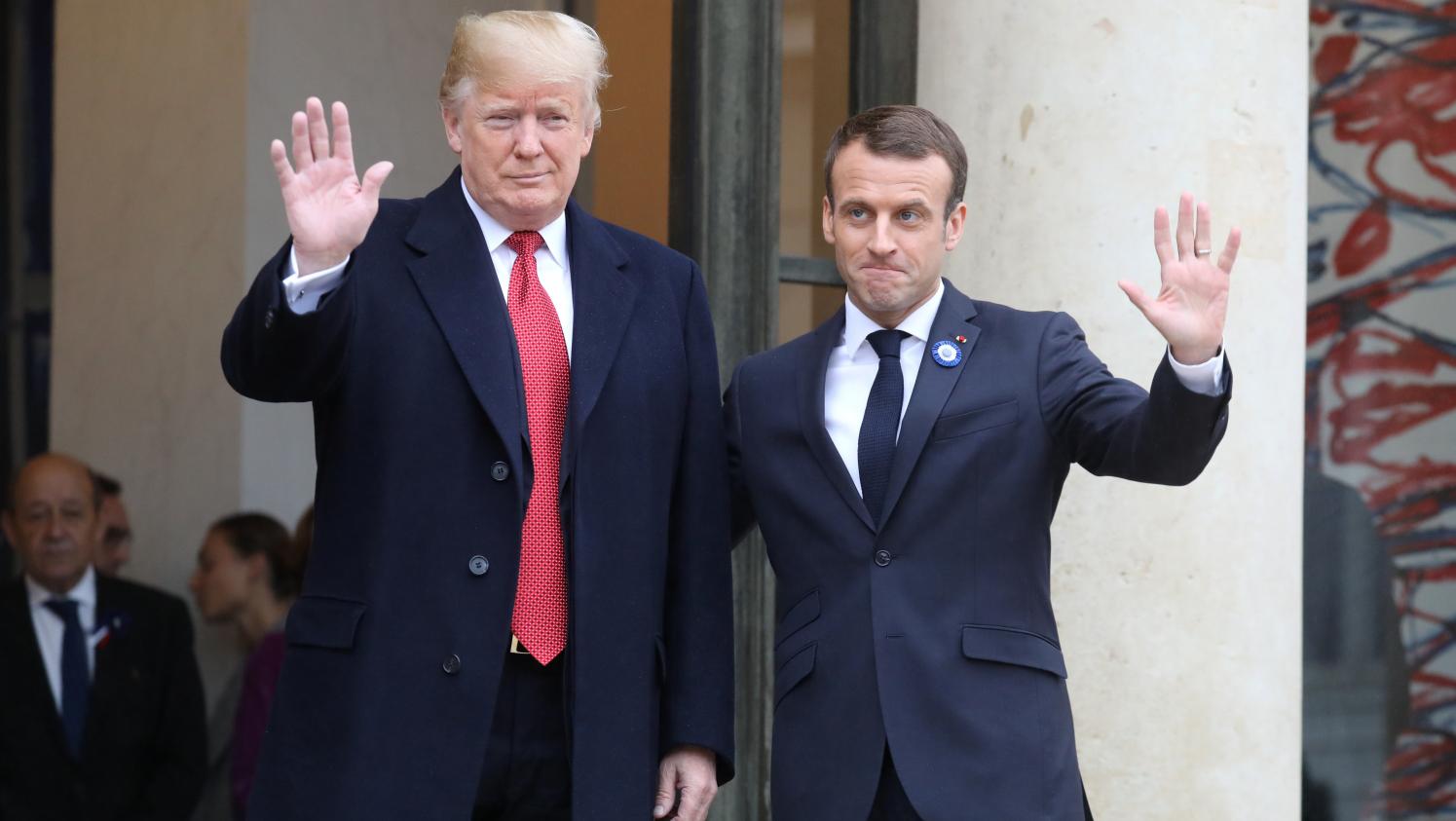Israeli Raid On Gaza Humanitarian Ships: Arab Media Perspective

Table of Contents
Portrayal of the Humanitarian Mission
Depiction of Civilians and Aid
Arab media overwhelmingly highlights the humanitarian dimension of the ships, portraying them as vessels laden with essential goods for the beleaguered civilian population of Gaza. The narrative consistently emphasizes the devastating impact of the ongoing blockade on the well-being of Gazans.
- Vulnerable Civilians: The vulnerability of Gaza's civilians, particularly women and children, is repeatedly showcased, underscoring the human cost of the conflict and the blockade.
- Visual Storytelling: Images and stories of the aid – food, medicine, medical equipment, and other essential supplies – intended for the civilian population are prominently featured, creating a powerful visual representation of the humanitarian crisis.
- Blockade's Impact: The article emphasizes the severe lack of access to basic necessities, directly linking the blockade to the suffering of the Palestinian population. This emphasizes the context of the raid, portraying it not as an isolated incident, but as a symptom of a larger, ongoing crisis.
Framing the Raid as an Act of Aggression
The Israeli raid is consistently framed as an act of aggression against innocent civilians and a flagrant violation of international law. The focus remains firmly on the use of force by Israeli forces and the potential for civilian casualties.
- Disproportionate Response: Arab media emphasizes the disproportionate nature of the Israeli response, arguing that the force used was excessive and unjustified given the nature of the humanitarian mission.
- Activist Voices: Statements from activists and organizations involved in the humanitarian mission are frequently quoted, lending credence to the narrative of aggression and violation of international norms.
- Legal Analysis: The legal implications of the raid under international humanitarian law are analyzed, further strengthening the claim that the Israeli actions constitute a violation of international norms and conventions.
The Role of the Blockade in Shaping the Narrative
The Blockade as a Central Issue
Arab media consistently links the raid to the prolonged Israeli blockade of Gaza, presenting it as a pivotal element within the larger context of the Israeli-Palestinian conflict. The blockade is depicted as the fundamental cause of Gaza's humanitarian crisis.
- Impact of the Blockade: The detailed impact of the blockade on food security, access to medicine, and the deterioration of essential infrastructure is meticulously documented.
- International Criticism: The article highlights the widespread international condemnation of the blockade, showcasing the lack of international support for this policy.
- Palestinian Suffering: The ongoing suffering of Palestinians under the blockade is a recurring theme, humanizing the situation and bolstering the argument that the raid was an act of aggression against a population already facing immense hardship.
Counter-Narratives to Official Israeli Explanations
Arab media actively challenges the Israeli government's justifications for the raid, offering alternative narratives that underscore the humanitarian repercussions and the perceived lack of transparency surrounding the incident.
- Comparative Analysis: Israeli statements are meticulously compared with reports from independent sources, such as international organizations like the UN, and human rights groups, exposing inconsistencies and highlighting discrepancies.
- Discrepancies in Accounts: The article examines the discrepancies between official Israeli accounts and other eyewitness reports, raising questions about the official narrative and suggesting potential cover-ups or distortions of the facts.
- Alternative Evidence: Evidence suggesting a different version of events from the official Israeli narrative is presented, aiming to provide a more comprehensive and balanced perspective.
The Impact on Public Opinion and Political Discourse
Fueling Anti-Israel Sentiment
The Israeli raid is likely to further intensify anti-Israel sentiment across the Arab world, reinforcing pre-existing narratives concerning Israeli aggression and the Palestinian struggle for self-determination.
- Social Media Reactions: The analysis includes an examination of social media reactions and public protests in Arab countries, highlighting the widespread anger and condemnation of the raid.
- Political Relations: The potential impact on political relations between Arab nations and Israel is discussed, suggesting a further deterioration in an already strained relationship.
- Shaping Political Discourse: The article examines how the event is shaping political discourse in Arab countries, potentially leading to increased calls for action and a stronger push for Palestinian rights.
Calls for International Action
Arab media outlets consistently call for international intervention to bring an end to the blockade and to hold Israel accountable for its actions.
- Statements of Condemnation: The article highlights statements from Arab leaders and international organizations condemning the raid and calling for an investigation.
- International Response: The international community’s response to the incident is analyzed, examining the level of condemnation and the potential for future actions.
- Addressing the Humanitarian Crisis: The article concludes by emphasizing the need for immediate action to address the humanitarian situation in Gaza, advocating for an end to the blockade and the provision of much-needed humanitarian aid.
Conclusion
The Israeli Raid on Gaza Humanitarian Ships, as portrayed by Arab media, transcends its status as a mere maritime incident, serving instead as a potent symbol of the ongoing conflict and the severe humanitarian crisis in Gaza. The coverage consistently underscores the devastating consequences of the blockade and frames the raid as a brutal act of aggression targeting civilians. Understanding these diverse Arab media perspectives is crucial for comprehending the complex realities of the Israeli-Palestinian conflict and the wider geopolitical ramifications of this event. Further in-depth investigations into the Israeli Raid on Gaza Humanitarian Ships are essential to ensure accountability and to finally bring about lasting solutions to the persistent humanitarian crisis engulfing Gaza.

Featured Posts
-
 Ngo Condemns Drone Attack On Gaza Aid Ship
May 03, 2025
Ngo Condemns Drone Attack On Gaza Aid Ship
May 03, 2025 -
 Discover This Country Culture History And Travel Tips
May 03, 2025
Discover This Country Culture History And Travel Tips
May 03, 2025 -
 Vatican Trump Macron Et Une Rencontre Tendue
May 03, 2025
Vatican Trump Macron Et Une Rencontre Tendue
May 03, 2025 -
 Land Your Dream Private Credit Job 5 Essential Dos And Don Ts
May 03, 2025
Land Your Dream Private Credit Job 5 Essential Dos And Don Ts
May 03, 2025 -
 Fortnite Item Shop Highly Requested Skins Return After 1000 Days
May 03, 2025
Fortnite Item Shop Highly Requested Skins Return After 1000 Days
May 03, 2025
